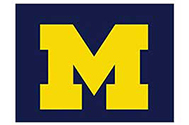25 Best JD/MPH Programs (Online & Campus) For 2025
Written By: Editorial Staff @ NursingProcess.org
 Have you ever wondered what you could accomplish if you had the knowledge and experience to combine two influential career roles? Would you like to have a voice that is heard and makes a difference in public health-related issues? By earning a Juris Doctor/Master of Public Health dual degree, you can make this happen. JD/MPH dual degree programs allow students to earn degrees as a Juris Doctor and Master of Public Health concurrently, giving you the opportunity to integrate knowledge and skills that can help impact public health on both local and global levels. If this sounds like the option you’ve been searching for, keep reading. Throughout this article, I will share the best JD/MPH programs for 2025 and give you some insight on how to begin the career you’ve been dreaming of.
Have you ever wondered what you could accomplish if you had the knowledge and experience to combine two influential career roles? Would you like to have a voice that is heard and makes a difference in public health-related issues? By earning a Juris Doctor/Master of Public Health dual degree, you can make this happen. JD/MPH dual degree programs allow students to earn degrees as a Juris Doctor and Master of Public Health concurrently, giving you the opportunity to integrate knowledge and skills that can help impact public health on both local and global levels. If this sounds like the option you’ve been searching for, keep reading. Throughout this article, I will share the best JD/MPH programs for 2025 and give you some insight on how to begin the career you’ve been dreaming of.
FOLLOWING ARE THE 25 BEST JD/MPH PROGRAMS (ONLINE & CAMPUS) FOR 2025
1. University of North Carolina at Chapel Hill – Chapel Hill, NC

To apply to this JD/MPH program, you must be accepted into both schools separately. Upon enrollment, you will typically take four years, out of which the first two years are in the JD courses, followed by one year of MPH coursework. In the final fourth year, you take courses from both the degrees, integrating the knowledge and competencies from both law and public health disciplines. Graduation requires completing 86 credits in JD and 42 credits in MPH courses.
Key Highlights
• The public health school offers 13 concentrations for regular MPH students, but because you are combining the MPH degree with JD, you must choose only relevant MPH concentrations from either Health Behavior, Health Equity, Health Policy, Global Health, Leadership in Practice, or Maternal, Child & Family Health.• Apart from the core and MPH concentration-specific courses, the MPH program also includes elective courses that can be completed at the law school.
2. Harvard University – Boston, MA

Admission into this degree requires you to apply to both the law and public health school individually. While in the first year you take the standard law courses, the second and third entail completing dual degree courses from both the law and public health schools. Typically, the third year is spent completing the MPH practicum and the JD Written Work requirement.
Key Highlights
• This dual degree first starts with the law coursework, so if you are keen on pursuing this dual program you must apply to the MPH school in the first semester of law school. A strong undergraduate background is a pre-requisite to apply to both schools.• The 45-credit MPH portion of this degree is to be completed in the Health Policy specialization.
3. Johns Hopkins University – Baltimore, MD

You must apply separately to the law school and the public health school. If you haven’t applied simultaneously to both programs, you can do so after completing one year of law school. To complete the MPH portion of the program you must apply for a leave of absence of one year from the law school during which you will take public health courses through Johns Hopkins.
Key Highlights
• To complete the graduation requirements for this dual degree, besides the program curriculum you must also complete one course in public health and law, and an elective course in ethics and public health.• Application to Johns Hopkins is through SOPHAS, and because this is a dual degree the requirement of having health-related experience or an advanced degree does not apply to you.
4. Emory University – Atlanta, GA

Offered in collaboration with its law and MPH school, to complete the JD courses you must earn 79 credits, whereas MPH courses comprise a minimum of 32 credits. The program offers the benefit of 21 shared credits between the two schools, helping you save time and tuition costs. Depending on your interests and career goals you can complete this dual degree in either one of the several MPH concentration options including that of Behavioral Science & Health Education, Environmental Health, Epidemiology, Global Environmental Health, Global Epidemiology, Global Health, and Health Policy & Management.
5. Columbia University – New York, NY

The degree requires you to complete three years of law study in addition to one year of the MPH coursework. Preferably, the first year must be in law after which you can take MPH courses and get back to law studies. While the MPH requires completing 42 credits, due to the shared credits between the two programs you must complete a minimum of 33 credits as part of the public health requirements. Furthermore, the JD requirements range from 80 to 88 credits. Upon completing all the courses, finally, at the end of four years, you earn two degrees of JD and an MPH.
6. University of Pennsylvania – Philadelphia, PA

If taken on a full-time basis you can complete this dual degree within four years. You can either apply concurrently to both the law and public health departments or can even apply to the MPH school during your first year at law school. As such, the program is structured to include three years of law study and one year in MPH courses. Preferably, during the first year, you must complete the standard law coursework, followed by MPH courses in the second year. In the third and fourth year, you take JD and MPH courses. To graduate, you must complete 86 JD credits and 16 MPH courses.
Key Highlights
• The six MPH electives that you are required to complete can include courses taken at the law school.• The JD curriculum includes a course on professional responsibility, experiential learning, the scholarly and writing project, in addition to the Pro Bono requirement.
7. University of Michigan – Ann Arbor, MI

This dual degree requires you to take the first year either in law or MPH. While in one school, you must apply to the second school before the end of the first year. During the second year, you take courses at the second school which could be either law or public health. During the third and fourth year, you must complete courses from both the programs, to finally earn your dual degree at the end of the fourth year. The JD curriculum requires earning 83 credits, whereas in the MPH coursework you must complete 48 credits. Being a dual degree, the program allows some shared credits between the two schools, thereby cutting short the overall credit requirements.
8. University of Washington – Seattle, WA

The dual degree requires completing 135 quarter credits hours in law and 63 quarter credits hours in MPH courses. The MPH portion can be completed as a generalist track or you can specialize in either Social & Behavioral or Health Systems & policy, based on your interest. Here, you will be mentored by an expert faculty, be it law or public health, most of whom hold an advanced degree and have extensive real-world experience.
Key Highlights
• The university’s location in the hub of innovation and policymaking can open up doors to various job positions as lawyers, legal advisors, or advocates of human rights.• As a JD/MPH student at UW, you can gain valuable experience in legal writing, editing, and scholarship by participating in the college’s student-edited journals.
9. University of California at Los Angeles – Los Angeles, CA

To enter this dual-degree program, you must fulfill the admission requirements of both schools separately. The program comprises 73 credits in JD courses and 48 credits in the MPH coursework. The MPH degree is offered in five specialization options of Health Policy & Management, Epidemiology, Environmental Health Science, Community Health Sciences, and Biostatistics. This dual degree program takes you through courses such as bioethics & law, health law & policy, human rights, and sexual rights & health.
10. University of Minnesota – Minneapolis, MN (online)

Preferably, you must apply simultaneously to both the schools to enter this program, however, you can also apply to the MPH school during your first year at law school. To qualify for admission, you must have a baccalaureate degree. To graduate, you are required to complete 88 credits of law school work, in addition to 42 MPH credits. Upon completion of this program, you will be able to influence policymakers in improving public health at both the local and national level.
Key Highlights
• As the MPH program is offered online, you will be charged resident tuition costs, even if you are a non-resident of Minnesota.• This dual degree allows a transfer of up to 14 credits from the law school towards your MPH coursework and likewise, up to 12 credits from the public health school can be transferred towards your JD courses, meaning you can save more time and dollars by taking lesser credits.
11. George Washington University – Washington, DC

Preferably, you must apply simultaneously to the school of law and public health, however, if you are unable to do so, you must ensure you apply to the second school before the end of the first year at the first school. Most students complete this program within four years of full-time study. During your student journey here, the college’s affiliation with the Department of Health Policy and Management can prove to be rather beneficial as you can expect some fruitful paid or unpaid internship opportunities at prominent industry partners throughout the metropolitan area.
Key Highlights
• You can transfer 8 law credits towards the MPH coursework and complete only 37 credits instead of the stand-alone requirement of 45 for the MPH degree.12. University of Florida – Gainesville, FL

In this dual Juris Doctor/Master of Public Health degree, the coursework from the school of law is longer than that of public health, therefore the college recommends you apply to the law school first and then to the MPH school. The program allows 12 shared credits between the two degrees and hence cuts short the duration by almost two semesters as against if completed as stand-alone programs. While the JD coursework requires completion of 88 semester credit hours, coming to the MPH portion, you must earn 48 credits.
Key Highlights
• Depending on which school you decide to enroll in first, the first year of the coursework entails completing courses of either JD or the MPH curriculum. To be eligible for this dual degree you must either apply to both schools at the beginning of the program or before the end of the first year.• The MPH school offers six concentration options which you can choose from depending on your specific field of interests.
13. Georgetown University – Washington, DC

This program offered only on a full-time basis requires completing a total of 165 credits over four years. The first-year entails completing 31 credit courses at the law school followed by 11 months of residency at John Hopkins where you complete MPH courses. Thereafter you must get back to the law school to complete 27 JD credits each, in the third and fourth year.
Key Highlights
• You may apply to allow a transfer of 6 MPH credits towards the law school credit requirement.• Although you complete all the MPH requirements in the second year, the MPH degree is awarded only after the fourth year, upon completing the entire dual degree courses.
14. Washington University in St. Louis – St. Louis, MO

This dual degree which takes four years to complete requires a separate application to both the schools. To be accepted into this program you must fulfill the admission requirements of the law as well as the school of medicine. Graduation requires you to complete 77 credits in JD and 43 courses in the MPH courses.
Key Highlights
• With this dual degree, you become eligible for an application fee waiver.• To make your education affordable the university offers several scholarships and financial aid opportunities that you can avail of, if eligible.
15. University of Virginia – Charlottesville, VA

Like most other JD/MPH programs, to enroll you must apply to two schools separately. This dual degree requires completing a total of 116 credits, comprising 86 in law and 42 credits in MPH courses. Typically, out of the total four years of the program, the first-year entails completing law courses, followed by courses from both disciplines in the final three years of the program.
Key Highlights
• Depending on the approval of the program director, this dual degree allows 9 to 12 credits from the law school to be applied to the MPH program.• Throughout the program, you will require completing six residency semesters at the law school and two residency semesters at the school of medicine.
16. University of Wisconsin at Madison – Madison, WI

The program starts with law courses, expecting you to complete the first two years at law school. During these two years, you can also take some MPH electives, provided you have the approval of the program director. The third-year mainly entails completing MPH courses at the MPH school. During the summer of the third year, you also complete an MPH fieldwork experience. The fourth-year is mainly spent completing any outstanding courses in law as well as the MPH program.
Key Highlights
• The MPH electives which can be completed in law courses comprise six credits.• Some of the course options for MPH electives include Health Law & administration, Administrative Law, Bioethics, Law, Science & Biotechnology, Administrative Law. You can also choose to complete one course in a Health Law Externship.
17. University of Georgia – Athens, GA

This is a four-year program, requiring you to complete a total of 118 credit hours. The first and second year entail completing law courses after which you proceed to the third year of MPH courses. You can also begin this program with MPH courses, provided you spend the next two years taking the JD courses. In the fourth year, you will complete the remaining JD and MPH courses, in addition to the MPH capstone course and a culminating experience.
Key Highlights
• The MPH coursework is to be completed in the Health Policy and Management concentration.• The 12 credits of MPH electives that you must take as part of your graduation requirement can be done in JD courses. This way you will be cutting down the burden of the law coursework by 12 credits.
18. University of Maryland – Baltimore, MD

The program takes four years to complete and is offered only in-person. By completing this dual degree, you will be equipped with analytical skills and clarity of thinking to come up with solutions for the improvement of public health.
Key Highlights
• The Law School at UMB is widely recognized for its JD program, offering one of the oldest and largest clinical law programs in the nation.• The MPH concentrations available for this dual-degree include Community & Population Health, Epidemiology, and Global Health.
19. Northeastern University – Boston, MA

Programs Offered: JD/MPH - Bouvé and JD/MPH - Tufts
Northeastern University’s dual degree program stands out as one the best JD/MPH programs in Massachusetts for providing the most extensive practical training in law through its Cooperative Legal Education Program. This program allows you to complete your law coursework from Northeastern and the MPH portion either from the MPH school at Northeastern or Tufts University. While the program in collaboration with Tufts School of Medicine takes 42 months, if you choose to complete the entire program through Northeastern University’s law and MPH school you can graduate within 40 months.
This dual degree program regardless of where you choose to complete the MPH courses prepares you for leadership in the field. If you are passionate about urban health you must choose to complete the entire program at Northeastern, as the university’s MPH coursework specifically emphasizes Urban Health. On the other hand, the dual degree in collaboration Tufts focuses on population-based approaches to health.
20. University of Oklahoma – Norman, OK

As such, the law coursework requires completion of 90 credits, whereas with the MPH degree you must earn 44 credits. But because this is a dual degree the requirements for law school are cut down to 81 as nine law credits can be completed at the MPH school. Likewise, the public health school allows nine-credit worth of elective courses to be completed at law school.